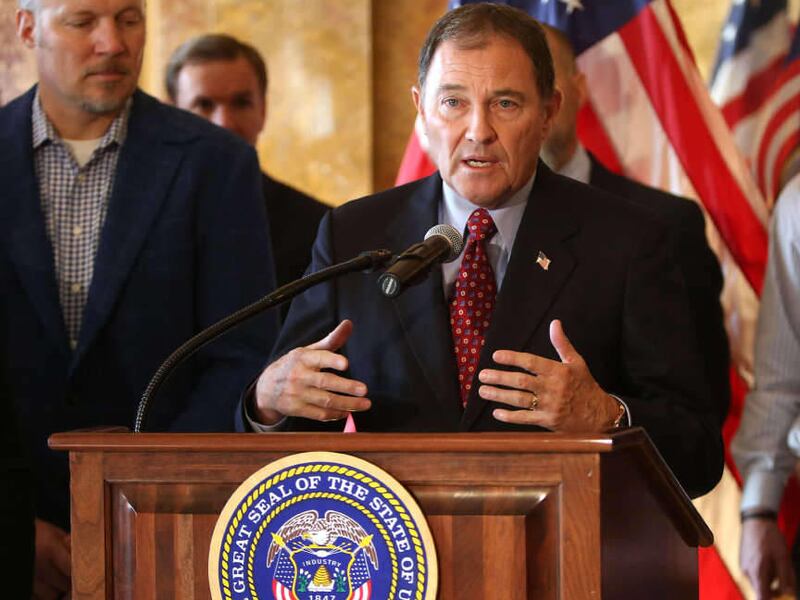This week, Gov. Gary Herbert launched a campaign for his Healthy Utah Plan, saying the manner in which it will provide coverage for the state’s uninsured is “unique to Utah.” Healthy Utah would function as an alternative to the Medicaid expansion mandated by the Affordable Care Act (ACA), creating a social safety net for those unable to afford basic health care.
The governor’s plan is an innovative way to provide insurance for the tens of thousands of Utahns who currently fall through the cracks between Medicaid and the subsidized coverage from the ACA. It has attracted support from Republicans and Democrats and a host of community leaders who recognize that if the state doesn’t step in to help these people, cities and counties will be left holding the bag.
Gov. Herbert was flanked at his press conference by political, health, insurance, business and religious leaders, including Salt Lake Chamber CEO Lane Beattie, Zions Bank President Scott Anderson, University of Utah Health Care CEO Dr. Vivian Lee, local homeless advocate Pamela Atkinson, the Most Rev. John C. Wester, bishop of the Catholic Diocese of Salt Lake City, and Bishop Gary Stevenson, presiding bishop of The Church of Jesus Christ of Latter-day Saints.
Herbert has negotiated with the U.S. Department of Health and Human Services a sensible insurance alternative to simply expanding Medicaid — one focusing on the key issues of fairness and finances. Healthy Utah does this — helping not only those at or below federal poverty levels but those hovering just above. And it recoups a good share of the estimated $680 million in ACA-related corporate and individual tax monies sent from Utah — some projections have as much as 40 percent ($272 million) to some 60 percent ($400-plus million) returned to the state to help subsidize Healthy Utah costs.
While the state cannot impose a “work requirement” to providing insurance, Healthy Utah includes an integrated jobs program that would encourage people to find employment to eventually reduce or eliminate the need for government assistance. These are common-sense provisions that set this proposal apart from the Medicare expansions in the rest of the country.
Opposition to the plan stems from the large expense overall, which is understandable. But these expenses are not being incurred in a vacuum. Doing nothing would mean the state would incur a great deal of opportunity costs, which are far more difficult to measure. Ignoring the problem wouldn’t save money, and it wouldn’t be fair to those who would have to pick up the tab in the face of the state’s inaction.
Abandoning the poor and the needy, apart from being morally irresponsible, isn’t a wise use of taxpayer dollars. As Gov. Herbert said in his press conference, “Turning a blind eye is not the Utah way.”
We agree. This is a good plan, and the state Legislature ought to support it.

